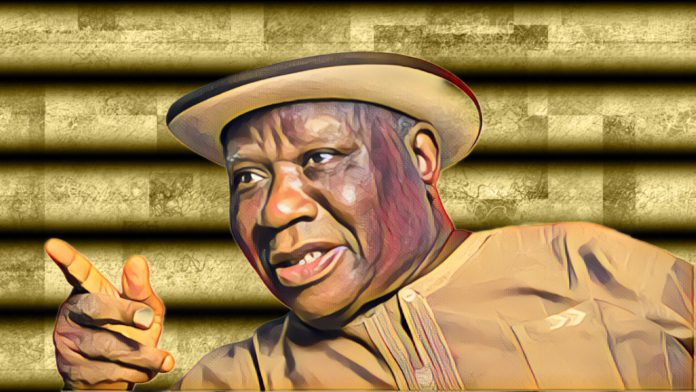The political turmoil in Rivers State, Nigeria, has taken a new twist as the main opposition party, the Peoples Democratic Party (PDP), has rejected the peace deal brokered by President Bola Tinubu between the state governor, Siminalayi Fubara, and the Minister of the Federal Capital Territory, Nyesome Wike.
The two leaders, who were once close allies, have been at loggerheads over the control of the state legislature and the 2024 governorship election. Their feud has led to violence, arson, and defections that have threatened the stability and security of the oil-rich state.
Tinubu, who is also the leader of the ruling All Progressives Congress (APC), intervened in the crisis on Monday night by bringing the warring parties to a meeting in Abuja.
According to a report by Punch, the meeting was attended by the President, Wike, Fubara, and his deputy, Mrs Ngozi Odu; a former governor of Rivers State, Peter Odili; and other stakeholders.
At the meeting, Wike and Fubara signed an eight-point agreement to end the political crisis in the state. Among others, it was agreed that the governor should withdraw court cases concerning the crisis and that he should represent the 2024 budget to the Amaewhule-led Assembly which was recognised as the Speaker.
However, the PDP National Working Committee, which met on Tuesday, rejected the intervention of the President and told the defectors that they could only return to the Assembly through fresh elections.
The PDP chairman, Umar Damagum, said the defectors had vacated their seats by virtue of Section 109 (1) (g) of the Constitution of the Federal Republic of Nigeria, 1999 as amended, which states that a member of a House of Assembly shall vacate his seat if he becomes a member of another political party before the expiration of the period for which that House was elected.
He said the factional Speaker, Edison Ehie, had officially declared the seats of the defectors vacant in line with the constitutional provision. He also said the Independent National Electoral Commission (INEC) should fix a date for the conduct of a fresh election into the 25 state constituencies in the state.
The PDP chairman accused the President of meddling in the affairs of the state and undermining the rule of law. He said the PDP would not accept any peace deal that was not based on justice and fairness.
The APC, on the other hand, defended the President’s role and said the PDP had no business in the affairs of the defectors. The APC National Director of Publicity, Bala Ibrahim, said the defectors had left the PDP because they had lost faith in the party and its leadership.
He also said the agreement reached at the meeting was a product of compromise from all sides and that the governor and the minister had shown maturity and statesmanship by putting aside their differences.
The Presidency also explained that Tinubu’s intervention in the crisis was not political but aimed at ensuring stability and security in the country. The President’s Special Adviser on Media and Publicity, Ajuri Ngelale, said the President was ready and equipped to take a hard action if the resolution had not been reached.
Many observers and analysts have called for a lasting solution to the crisis that would address the root causes and the grievances of the parties involved.
The peace deal brokered by Tinubu may be a step in the right direction, but it remains to be seen if it will hold and if it will be implemented in good faith. The people of Rivers State deserve peace, development, and good governance, and they hope that their leaders will deliver on their promises.



